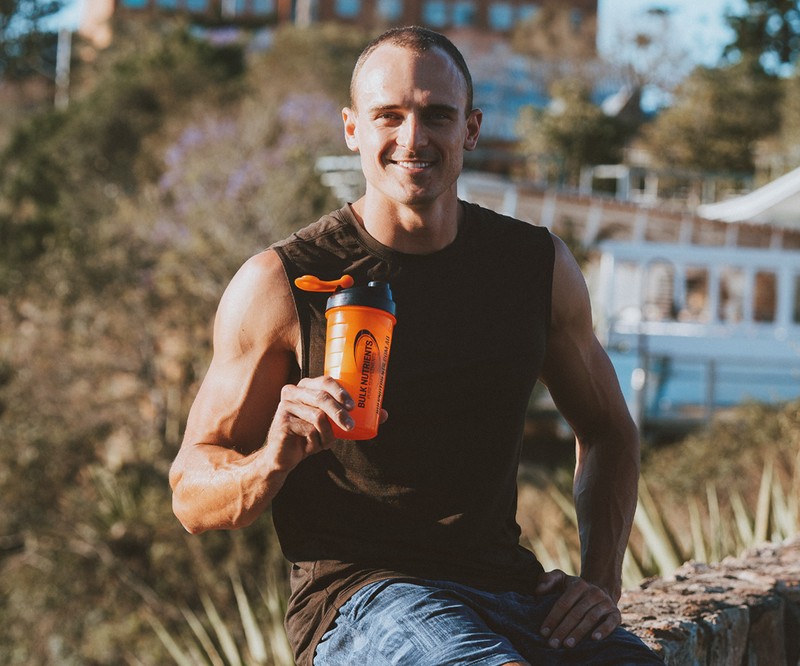Gut Health and Fitness: Probiotics & Fibre Explained

Understanding The Gut Microbiome
Your gut microbiome is like a bustling city of trillions of tiny organisms living in your digestive tract. These little guys help with digestion, immune function, and even mental health. For athletes, a balanced gut microbiome means you’re absorbing nutrients efficiently, which fuels your body for peak performance.
But things like a poor diet, stress, and antibiotics can mess with this balance, leading to inflammation and less nutrient uptake. So, keeping your gut microbiome healthy is key if you want to boost your athletic performance and overall health.
Probiotics for Fitness and Recovery
Probiotics are live “friendly” bacteria and yeasts that support a healthy gut — and their benefits go far beyond digestion. For anyone who exercises regularly, a balanced gut microbiome can influence how well you absorb nutrients, manage inflammation, and recover between sessions.
So, what does the science say? Recent reviews suggest that probiotic supplementation may support endurance performance, especially when multi-strain formulas are used. Early evidence also hints at potential benefits for power-based exercise, though more research is needed. Probiotics may also help reduce muscle soreness and markers of muscle damage after tough workouts, thanks to their role in calming inflammation.
On a practical level, probiotics can also improve nutrient absorption — particularly protein, carbs, and amino acids — which are key for fuelling exercise and repairing muscle. Plus, they may help reduce common gut issues like bloating or discomfort, something many runners and endurance athletes will know can derail a training session.
In short, while the research is still growing, probiotics look like a handy addition for anyone wanting to support performance, recovery, and overall gut health — helping you feel good both inside and outside the gym.
Importance of Fibre for Gut Health
Fibre isn’t just about digestion — it plays a bigger role in overall fitness and performance than most people realise. A healthy fibre intake supports better gut function, steadier energy, and improved nutrient absorption, all of which help you train harder and recover faster.
Soluble fibre, in particular, helps regulate blood sugar levels, providing a more consistent energy supply during exercise. It also supports the absorption of vitamins and minerals, making sure your body gets the most from the foods you eat.
Emerging animal research suggests fibre may even influence body composition and inflammation. For example, diets higher in fibre have been linked with leaner physiques and lower markers of inflammation — two factors that can directly support performance and recovery.
Getting Enough Fibre
Whole foods should always be your first port of call. Legumes, oats, chia seeds, flaxseeds, fruits, and vegetables all provide a mix of soluble and insoluble fibre to support gut and overall health.
For those with busy schedules, fibre supplements can be a convenient option:
- Psyllium husk: Rich in soluble fibre, supports regularity and gut lining health.
- Acacia fibre: Gentle on digestion and helps feed beneficial gut bacteria.
- Inulin: A natural prebiotic fibre that supports a healthy microbiome and balanced blood sugar.
- Konjac Root: Can absorb 100 times its weight in water by feeding friendly bacteria in the intestines which can induce feelings of satiety.
When choosing a supplement, stick with clean options without unnecessary additives or artificial sweeteners to avoid gut discomfort. If you’re after a simple, plant-based option, a blend like Tri Fibre+ can be an easy way to boost your daily fibre intake alongside a balanced diet.

Practical Tips for Gut Health
Supporting your gut health doesn’t need to be complicated — small, consistent habits can add up to a big difference over time. Think of it as training your digestive system the same way you’d train in the gym: with variety, balance, and recovery.
Dietary Tips for a Healthier Gut
Improving gut health starts with what you eat. Here are some practical dietary tips to optimise your gut health:
- Eat a rainbow of plants: Load up on fruits, veggies, legumes, and whole grains to feed a diverse gut microbiome.
- Stay hydrated: Aim for 2–3 litres of water daily (more if you’re active) to keep digestion running smoothly.
- Cut back on processed foods: Limiting excess sugar and refined fats supports a healthier gut environment.
Supplements and Foods to Support Gut Health
Besides dietary changes, certain supplements and foods can further support your gut health:
- Probiotic supplements: Look for high-quality options with a variety of strains to support a balanced gut.
- Fermented foods: Sauerkraut, kimchi, miso, and kefir are natural sources of beneficial bacteria.
- Prebiotic foods: Bananas, onions, garlic, and chicory root help feed your “good” gut bugs.
- Fibre blends: If you struggle to hit your daily fibre target from food alone, a clean, plant-based option can be a simple way to boost your intake.
Combining these supplements and foods with a balanced diet can significantly enhance your gut health, leading to better athletic performance and overall well-being.

Putting Gut Health Into Practice
Gut health isn’t just about what happens in your digestive system — it influences how energised, focused, and resilient you feel every day. By nourishing your microbiome with fibre, probiotics, and a balanced diet, you’re giving your body the foundation it needs to perform and recover well.
Start small: add more colourful plants to your meals, stay hydrated, and consider supportive options like probiotic foods or fibre blends when your diet needs a boost. Over time, these habits will improve your overall well-being, inside and outside the gym.
If convenience helps you stay consistent, supplements are a simple way to top up your intake and keep your gut on track. Pair that with smart training, good sleep, and balanced nutrition, and you’ll have all the right building blocks for long-term health and performance.

Nick is Bulk's Customer Service team's Technical Support Officer.
Which is our way of saying he's the guy whose job it is to answer your obscenely technical supplement questions.
More about Nick TelescaReferences:
- Jarrett H, Medlin S, Morehen JC. The Role of the Gut Microbiome and Probiotics in Sports Performance: A Narrative Review Update. Nutrients. 2025 Feb 14;17(4):690. doi: 10.3390/nu17040690. PMID: 40005018; PMCID: PMC11858190. https://pmc.ncbi.nlm.nih.gov/articles/PMC11858190/
- Jäger R, Shields KA, Lowery RP, De Souza EO, Partl JM, Hollmer C, Purpura M, Wilson JM. Probiotic Bacillus coagulans GBI-30, 6086 reduces exercise-induced muscle damage and increases recovery. PeerJ. 2016 Jul 21;4:e2276. doi: 10.7717/peerj.2276. PMID: 27547577; PMCID: PMC4963221. https://pubmed.ncbi.nlm.nih.gov/27547577/
- Jäger R, Mohr AE, Carpenter KC, Kerksick CM, Purpura M, Moussa A, Townsend JR, Lamprecht M, West NP, Black K, Gleeson M, Pyne DB, Wells SD, Arent SM, Smith-Ryan AE, Kreider RB, Campbell BI, Bannock L, Scheiman J, Wissent CJ, Pane M, Kalman DS, Pugh JN, Ter Haar JA, Antonio J. International Society of Sports Nutrition Position Stand: Probiotics. J Int Soc Sports Nutr. 2019 Dec 21;16(1):62. doi: 10.1186/s12970-019-0329-0. PMID: 31864419; PMCID: PMC6925426. https://pubmed.ncbi.nlm.nih.gov/31864419/
- Jayasinghe T, Jenkins J, Medara N, Choowong P, Dharmarathne G, Kong F, Cho H, Kim SH, Zhang Y, Franco-Duarte R, Eberhard J, Spahr A. Dietary Fibre Modulates Body Composition, Blood Glucose, Inflammation, Microbiome, and Metabolome in a Murine Model of Periodontitis. Nutrients. 2025 Mar 26;17(7):1146. doi: 10.3390/nu17071146. PMID: 40218904; PMCID: PMC11990244. https://pubmed.ncbi.nlm.nih.gov/40218904/
- Gupta RK, Gangoliya SS, Singh NK. Reduction of phytic acid and enhancement of bioavailable micronutrients in food grains. J Food Sci Technol. 2015 Feb;52(2):676-84. doi: 10.1007/s13197-013-0978-y. Epub 2013 Apr 24. PMID: 25694676; PMCID: PMC4325021. https://pmc.ncbi.nlm.nih.gov/articles/PMC4325021/
Related Blogs

How You Can Improve Your Gut Health?
Posted by Bulk Nutrients
Estimated reading time: 6 minutes

Probiotics and How They Promote Gut Health
Posted by Bulk Nutrients
Estimated reading time: 8 minutes

The Benefits of a Plant-Based Diet for your Gut
Posted by Bulk Nutrients
Estimated reading time: 5 minutes














































